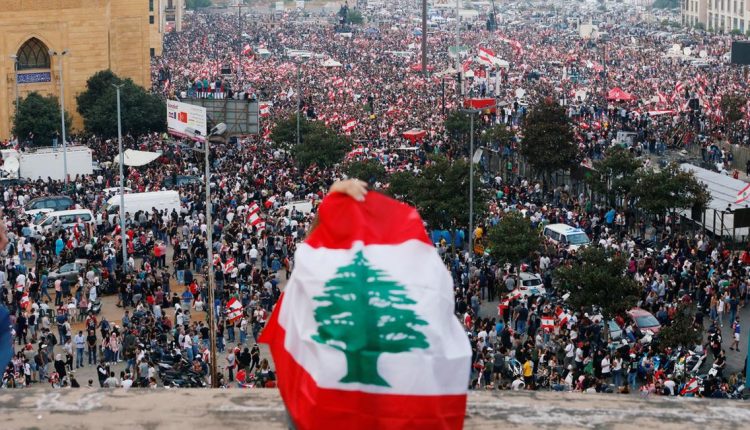Lebanon: the victory of the masses! Hariri’s government collapses! Fight on!
In Lebanon on 17 October, the masses began an insurrection against the austerity plan the government launched together with the IMF for a way out of the serious economic crisis in which they have subjected. The revolt that began with the slogans against capitalist and social ruin after the ruthless government repression of mobilisations escalated against the regime. The Lebanese people who filled the squares with economic and social demands focused on the representatives and parties of the corrupt regime that control and possess a good part of the country’s wealth.
The country witnessed the most massive mobilisations in its history. In larger cities like Beirut, Tripoli, South, Nabatiyeh, and Zouk that make up a good part of the national territory, over two million people took to the streets shouting “The people want the regime to leave”.
In the first week of the rebellion, the government failed in suppressing the mobilisations with repression. Then it wanted to reassure the masses with a new package of reforms. These small concessions from Saad Hariri government did not satisfy the people and continued with their struggle against the corrupt, cronies’ regime and the pro-IMF and pro-imperialist government.
Because of this heroic struggle of the Lebanese people on October 29, President Hariri resigned. This is a victory for the working people of Lebanon. From the International Workers’ Unity – Fourth International (IWU-FI) we salute this triumph of the Lebanese masses.
The defence of this triumph and progress in it will depend on the fighting firmness of the Lebanese workers. The masses, who overthrew the government, continue their mobilisation without emptying the squares, with the will to put an end to the corruption and religious sectarianism of the regime, against the ruin caused by the economic crisis, and for the realisation of their democratic and social demands.
One success of this rebellion has been its unifying character of the Lebanese people. It began spontaneously with the participation of the unemployed, workers, youth and women, and then dragged the middle classes onto the streets. In the confessional political regime, they divide the power among orthodox Maronite, Christian Maronite bourgeois parties, Sunni and Shiites (Hezbollah) Muslims. Built after the 1975-90 civil war, it always took advantage of this character to divide the mobilisations of the Lebanese people. But the current demonstrations demolished the wall of fear and began to shake the bases of the regime.
Meanwhile, the Lebanese bourgeoisie and the actors of the regime continue with their intrigues to divide the struggles to safeguard the regime. The Hezbollah organisation, which showed its counter-revolutionary character once again during the Syrian revolution, attacked the mobilisations on 29 October with the argument that “Hariri’s resignation could drag the country into chaos”. Although the Lebanese masses could repel this aggression, the possibility of repeating similar counter-revolutionary provocations should not be minimised. Since 2011, we have witnessed this situation during the revolutionary processes in the Middle East and North Africa many times.
We are with the working people of Lebanon struggle against all the interventions of the forces of the regime, of the counter-revolutionary currents, of the countries of the area, and imperialism.
The Lebanese popular masses spontaneously incited a struggle that questions the capitalist system, the inequality it creates and the regime that sustains it. The mobilisations that extend to almost the whole country have not yet built a direction that unifies them. However, in most of the cities, groups have spontaneously emerged that call people to the streets and that manage the logistics of the mobilisations. These organisations must be further extended and centralised to coordinate the struggles and build the self-organisations of the Lebanese working people.
In the building of this coordination and self-organisation, it will be necessary to develop a programme of urgent measures based on the democratic, economic and social demands voiced by the Lebanese people against the corrupt and sectarian regime, and the capitalist economic crisis. The class organisations, trade unions, socialists and organisations of women and youth in the struggle who have a great opportunity to build an alternative power of the workers and the people to make possible to break with the capitalist system and imperialism. The building of such an alternative will undoubtedly help similar struggles of the masses from the Middle East and North Africa to Latin America.
With this perspective, from the IWU-FI we call the fighters of the world to support and show solidarity with the struggle of the Lebanese working people.
International Workers’ Unity-Fourth International (IWU-FI)
31 October 2019



Yorumlar kapalıdır.